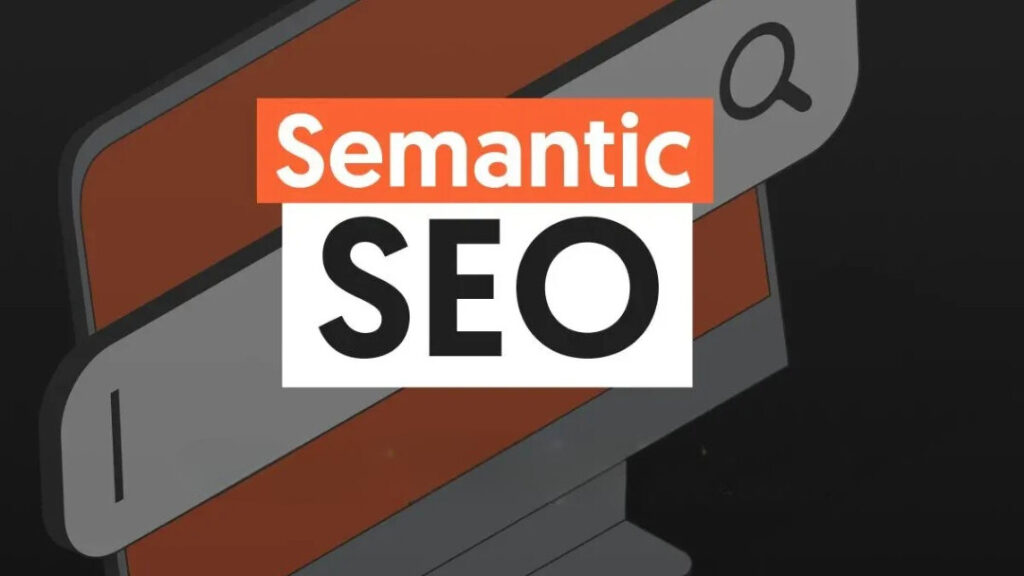In today’s online world, getting noticed on search engines like Google is a big deal for businesses. Regular SEO—using keywords to rank higher—used to be enough, but things have changed. Now, there’s something called semantic SEO, and it’s all about understanding what people really want when they search. Because of this shift, businesses are looking for the best semantic SEO consultants to help them stand out. In this guide, we’ll break down what semantic SEO is, why it matters, and how to find the right consultant to grow your online presence.
What is Semantic SEO?
Semantic SEO is a way to make your website content match what people are searching for, beyond just the words they type. It’s about figuring out the intent behind a search—like whether someone wants to buy something, learn something, or find a specific answer. Search engines like Google use smart technology to understand this intent, and semantic SEO helps your content fit that puzzle.
For example, if someone searches “best running shoes,” they’re not just looking for a list of shoes. They might want reviews, prices, or tips on choosing the right pair. Semantic SEO makes sure your content answers those needs.
Why Does Semantic SEO Matter?
Semantic SEO isn’t just a trend—it’s a game-changer for businesses. Here’s why it’s so important:
-
Better search rankings: When your content matches what people are looking for, Google is more likely to show it higher up in results.
-
More website visitors: Higher rankings mean more people click through to your site.
-
Happier users: When visitors find what they need quickly, they stick around longer and trust your brand more.
-
Beating the competition: As Google gets smarter, businesses using semantic SEO stay ahead of those stuck on old methods.
In short, semantic SEO helps you connect with your audience in a way that search engines reward.
Qualities of the Best Semantic SEO Consultants
Not all SEO experts are the same. The best semantic SEO consultants have specific skills that set them apart. Here’s what to look for:
-
Lots of Experience
A great consultant has years of practice with semantic SEO. They’ve worked on real projects and can show results—like higher rankings or more traffic for past clients. -
Understanding Natural Language
Semantic SEO is all about how words connect and what they mean. A consultant who knows natural language processing (NLP)—the tech behind how search engines “read” content—can make your site more relevant. -
Skill with Schema Markup
Schema markup is like a label that tells search engines what your content is about (e.g., a product, article, or event). A good consultant knows how to use it to make your site pop in search results. -
Keeping Up with Changes
SEO rules change all the time. The best consultants stay on top of Google’s updates and adjust their plans to keep your site performing well. -
Clear Communication
You don’t want someone who confuses you with jargon. A top consultant explains things simply, listens to your goals, and keeps you in the loop.
These traits help you spot a consultant who can really make a difference.
Top Semantic SEO Consultants to Know
Here are three standout semantic SEO consultants who’ve earned a reputation for great work. (Note: These are fictional examples based on common industry profiles.)
-
John Smith – Smith SEO Solutions
John has over 10 years of SEO experience and shines in semantic SEO. His company helps businesses create content that matches what users want, leading to better rankings and more clicks. Clients love his focus on practical, results-driven strategies. -
Jane Doe – Doe Digital
Jane is a pro at helping online stores get noticed. She uses her knowledge of natural language to optimize product pages, making them easier to find and more appealing. Her clients see higher sales thanks to her smart approach. -
Alex Johnson – Johnson SEO
Alex brings a passion for semantic search to every project. He offers services like content tweaks, schema setup, and topic planning. Businesses praise him for delivering steady growth and staying ahead of trends.
These consultants show what’s possible with the right expertise. You can look for similar pros by checking reviews, portfolios, or industry forums.
How to Pick the Right Semantic SEO Consultant for Your Business
Finding the best semantic SEO consultant takes a little effort, but it’s worth it. Follow these steps to choose wisely:
-
Check How They Communicate
Can they explain their ideas clearly? Do they respond quickly? A consultant who’s easy to talk to will make the process smoother. -
Ask for References
Talk to their past clients. Did they deliver results? Were they reliable? This gives you a real sense of what to expect. -
Look for Industry Experience
If they’ve worked with businesses like yours, they’ll understand your challenges better. For example, a consultant who knows retail can help an online store faster than someone new to it. -
Understand Their Plan
Ask how they’ll improve your site. Will they focus on content? Schema? User intent? Make sure their strategy fits your goals. -
Talk About Costs and Terms
Get a clear picture of their fees—hourly, project-based, or ongoing. Check the contract for details like timelines or guarantees.
Taking these steps helps you find a consultant who’s the right match for your needs.
Simple Tips to Start Semantic SEO Yourself
You don’t always need a consultant to get started. Here are five easy ways to use semantic SEO on your own:
-
Think About User Intent
Put yourself in your visitors’ shoes. What are they trying to do? Answer that with your content—whether it’s a guide, product page, or FAQ. -
Add Related Keywords
Don’t just repeat one phrase. Use tools like Google’s Keyword Planner to find similar terms (e.g., “running shoes” might include “sneakers” or “athletic footwear”). -
Group Your Content
Build a main page about a big topic—like “healthy eating”—and link it to smaller pages about recipes or tips. This shows search engines you know your stuff. -
Use Structured Data
Add schema markup with free tools like Google’s Structured Data Markup Helper. It’s like giving Google a map of your site. -
Make It Voice-Friendly
People use voice search (like Siri) more now. Write naturally, like you’re answering a question out loud—e.g., “What are the best running shoes for beginners?”
These steps can give your site a boost while you search for a consultant.
Common Questions About Semantic SEO Consultants
People often have questions before hiring a consultant. Here are answers to the big ones:
1. How Much Does a Semantic SEO Consultant Cost?
Prices depend on the consultant’s experience and your project size. Hourly rates usually range from $100 to $300. Some offer flat fees or monthly plans—ask for a breakdown.
2. How Long Until I See Results?
SEO takes time. With a solid semantic strategy, you might see better rankings or traffic in 3 to 6 months. Big wins can take longer, so patience is key.
3. Are There Risks to Hiring a Consultant?
Yes, if you pick someone who cuts corners—like using shady tricks to cheat search engines. That can get your site penalized. Stick to consultants who focus on quality and follow Google’s rules.
Wrapping It Up
Semantic SEO is a must in today’s online world. It’s about giving people what they want when they search, which helps your site rank higher and attract more visitors. But doing it well takes skill—that’s where the best semantic SEO consultants come in.
Look for someone with experience, a knack for understanding search intent, and the ability to use tools like schema markup. Use the tips in this guide to find a consultant who fits your business and budget. Or, try some of the simple strategies yourself to get started.
The online space keeps changing, but with the right help, your business can thrive. Whether you hire one of the best semantic SEO consultants or take it step-by-step on your own, now’s the time to make your website work harder for you.


